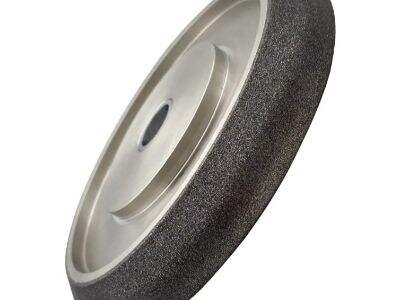Grinding wheels are slang term states very useful equipment which find its application in manufacturing industry to cut and process various types of material. These are found in a wide range of sizes and configurations, and serve in a variety of high-speed applications.
Selecting an Abrasive Material
Selecting the correct type of abrasive when choosing a Grinding Materials is extremely important. Aluminum oxide is the most widely used abrasive in the manufacture of grinding wheels. It has a reputation for being mighty and well equipped, making it usable on various materials. This is one of the reasons why it is used widely!
Another common abrasive is silicon carbide. This makes it better suited for grinding harder materials, like glass and ceramics, as it is much more brittle than aluminum oxide. Silicon carbide is an excellent choice when working with hard or fragile materials.
Diamond is the most abrasive material that exists and is also the hardest and most durable of these materials. Ideal for very hard materials like carbide, glass, and ceramics. The downside of this option is diamond grinding wheels can be extremely high, so you want to really assess your budgetary applications before going this route.
Importance of Grain Size and Bonding Agents
Size of abrasive grains is another criterion that should be taken into account while selecting a grinding wheel. The size of these grains will matter on how the material that you are working on is going to look like. Finer grains work really well when it comes to finishing and polishing jobs because they leave a finer surface. Oppositely, big grains are perfect for rough grinding since they remove material faster.
Furthermore, the bond between the segments and core also plays an important role in Grinding Machines performance. The most common types of vitrified bonding agents are used for conventional grinding applications. These support the abrasive grains well and can cut a lot of materials. High-speed grinding applications, requiring fast and effective cutting, are more suited to Resinoid bonding agents.
Resinoid and Vitrified Grinding Wheels Overview
Synthetic resin makes up the composition of resin bond wheels. They are ideal for driving high-speed grinding applications since they are rugged and versatile. Resinoid grinding wheels are versatile and suitable for a wide range of materials. Likewise, the Resinoid wheels are highly heat resistant.
The vitrified grinding wheels consist of bonding agents and abrasive grains. These are most suited for general-purpose grinding and work with almost all materials. Vitrified wheels are super durable too, able to hold their shape under high temperatures and pressures.
Conclusion
It is really important that you choose the right wheel because it impacts the results. An understanding of how grinding wheels for glass are composed including different abrasive types, grain sizes, and bonding agents will allow you to select the proper wheel for the job. REZZ provides a diverse range of grinding wheels for all applications and materials.

